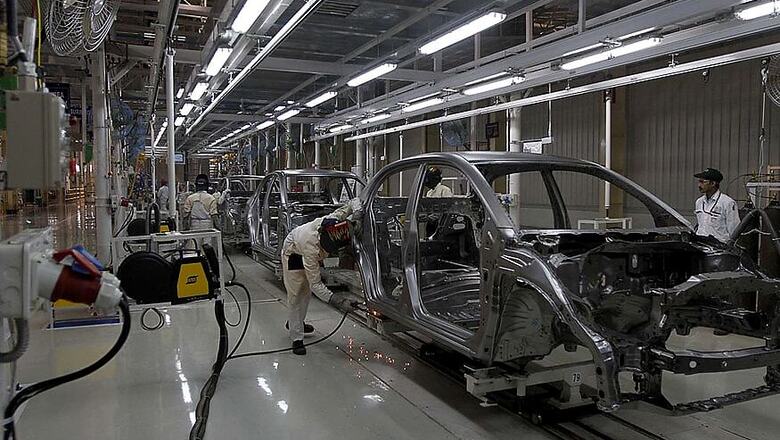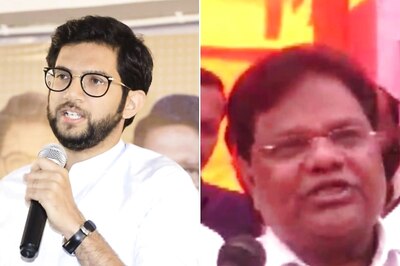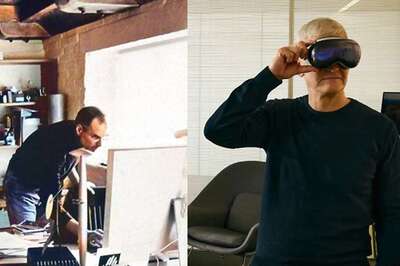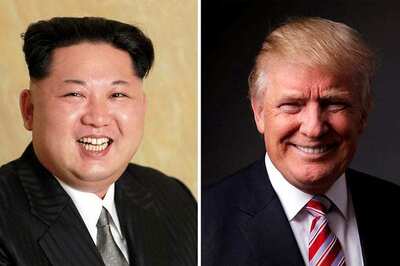
views
The auto component industry, which accounts for around 2.3 per cent of the country's GDP, is looking for government support in terms of tax rationalisation as it aims to tide over the challenging business environment, industry body ACMA said on Wednesday. The industry, which provides employment to over 50 lakh people in the country, is seeking GST reduction on auto components as well as vehicles in order to revive the overall automobile industry.
The industry body continues to support the vehicle industry in their request to the government for enhancing vehicle demand in the country through a reduction in GST on all vehicle categories to 18 per cent and introduction of an incentive-based scrappage policy, ACMA President Deepak Jain told reporters. "For the components sector, ACMA continues to recommend a uniform 18 per cent GST rate across the auto component sector; currently 60 per cent of the auto components attract 18 per cent GST rate, while the rest 40 per cent, majority of which are two-wheelers and tractor components, attract 28 per cent (GST rate)," he added.
A benign rate of 18 per cent will not only ensure better compliance but will also ensure a larger tax base, Jain noted. He expressed hope that the component industry's performance is expected to return to pre-COVID-19 levels by the festive season should the ramp-up be not stymied by lockdowns in manufacturing zones and lack of availability of manpower.
"Going forward, to allow for uninterrupted production in the automotive value chain, despite local lockdowns, ACMA has recommended to the government to accord's continuous production industry's status to the automotive industry," he noted. He, however, noted that with the unlocking of economy, growth seems to be returning to the industry with an uptick in vehicle consumption especially in the two-wheelers, passenger vehicles, and the tractor segments, although sales of commercial vehicles continue to be challenged, Jain said.
He outlined robust demand from rural areas and the government's focus on local manufacturing as some of the positive factors for the industry. On growth outlook for the auto industry as a whole for the entire 2020-21 fiscal, Jain said, "Definitely there will be contraction this year. Last year was also a de-growth year.
He further said, "So if you look at the two-year horizon, we have already de-grown by 18 per cent last year and if you look at this year you could actually witness, in the two-year horizon, a de-growth of 30-35 per cent," he added. Jain said the auto component industry has displayed remarkable resilience in wake of the lockdown but the sector is now facing challenges like unavailability of skilled labour which has hit production levels.
"We are finding it difficult to produce even for the curtailed demand without skilled labour. It has definitely hit our productivity," Jain said while adding that there were no significant job losses in the segment. When asked if problems persisted relating to import of components from China, Jain said the issue stands resolved with the intervention of the government.
Jain noted that the long-term prospects of the Indian auto component industry continue to be bright, especially with focus of the government on self-reliance and global competitiveness of the industry. The auto component industry and the vehicle industry are closely working together for deep-localisation and import substitution, which will result in higher value-addition by the auto component manufacturers making the sector exports competitive, he added.
Also Watch:
Last fiscal, the auto component industry reported a turnover of Rs 3.49 lakh crore (USD 49.2 billion), registering a de-growth of 11.7 per cent over 2018-19. Subdued vehicle demand, investments made for transition from BS-IV to BS-VI, liquidity crunch, lack of clarity on policy for electrification of vehicles and slow-down in key export markets, among others, had an adverse impact on the performance of the components sector in India as also on its expansion plans, Jain noted.
Similarly, Automotive Component Manufacturers Association of India (ACMA) Director General Vinnie Mehta said the overall vehicle industry witnessed a severe downturn in 2019-20 that saw sales slump by 18 per cent. "The component industry, in tandem, posted a subdued performance with de-growth of 11.7 per cent over the year, registering a turnover of Rs.3.49 lakh crore (USD 49.2 billion)," he added.
Auto component aftermarket at Rs 69,381 crore (USD 9.8 billion) remained stable last fiscal while sales to OEMs in the domestic market at Rs 2.87 lakh crore (USD 40.5 billion) declined 17 per cent, he noted. Both imports and exports declined by 11.4 per cent and 3.2 per cent, respectively, Mehta said.
Imports stood at Rs 1.09 lakh crore (USD 15.4 billion) last fiscal, while exports were at Rs 1.02 lakh crore (USD 14.5 billion), he added. Last fiscal, auto component exports witnessed a degrowth of 3.2 per cent to Rs 1.02 lakh crore (USD 14.5 billion) from Rs 1.06 lakh crore (USD 15.2 billion) in 2018-19.
The key export items included drive transmission and steering, engine components, body/chassis, suspension and braking components. Jain said that ACMA is also in dialogue with the government in order to revise FTAs to make them favourable for domestic firms.




















Comments
0 comment